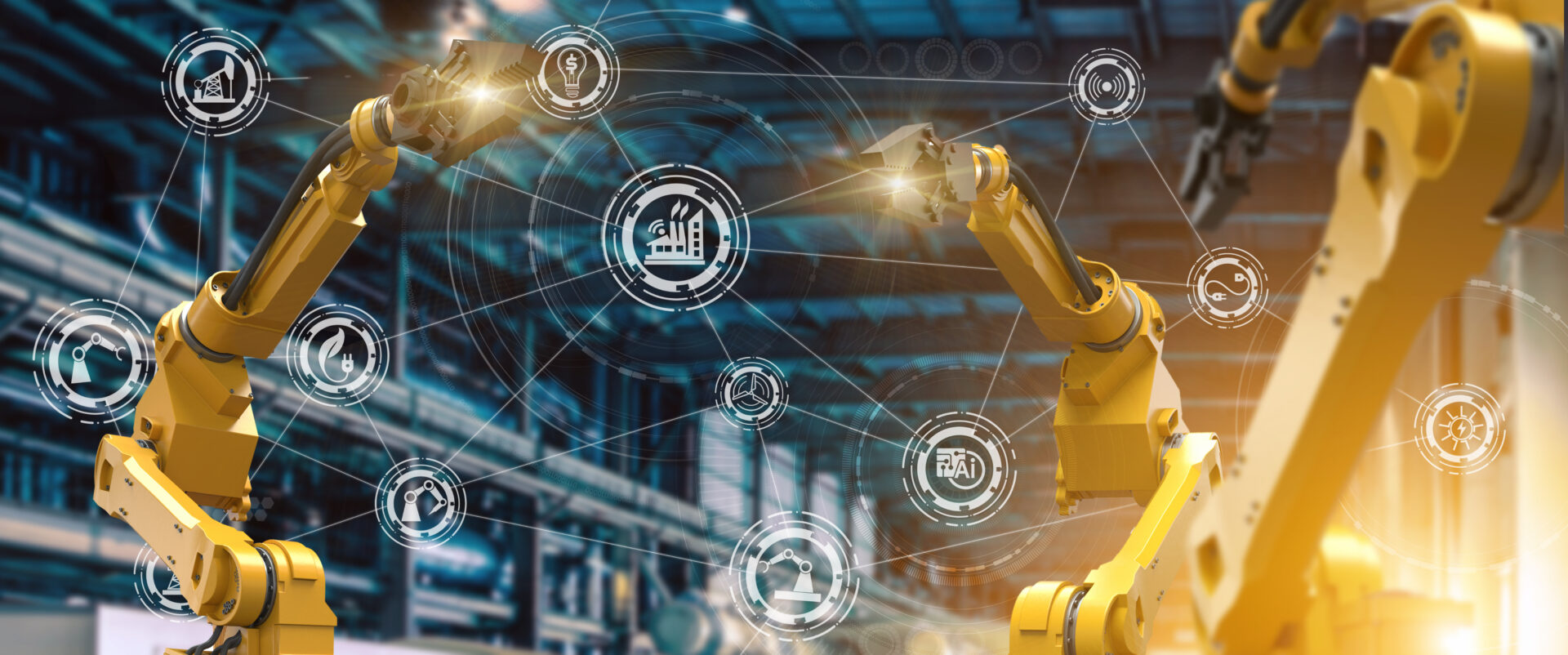
At ACHEMA with presentation on AI and process mining
Rothbaum will be showcasing new process mining apps at ACHEMA at stand E69 in hall…

NEWS
On September 18, 2025, an article by Rothbaum entitled “More than technology: How processes, systems and people are becoming a smart factory” was published in B2B Special edition published in the Handelsblatt. The publication is aimed primarily at decision-makers in German production companies who want to modernize their factories and make them more efficient.
Many manufacturing companies invest in new systems, but data silos, a lack of integration and unclear processes often prevent sustainable success. In this interview, Philipp Kappus, Partner at Rothbaum, explains how the smart factory can become a reality with a focus on business value and a holistic approach.
Why do manufacturing companies often fail on the road to the smart factory?
A typical stumbling block is that investments in automation and new IT systems are made too selectively. Those who focus solely on technical solutions without considering the interlinking of processes, systems and data flows are taking a big risk. Management is often unaware of the actual benefits of the smart factory, making it difficult to justify the expense without a clear business value. It is crucial to understand the factory as an overall system, integrate employees and clearly define interfaces. Otherwise, digitalization will remain piecemeal.
What role do MES and ERP systems play in a successful smart factory?
ERP and MES form the central bridge between the store floor and business processes. These are supplemented by other systems such as machine data acquisition, warehouse management systems and IIoT platforms. Grown structures and isolated solutions with large amounts of data have increased complexity in recent years. The great added value comes from the seamless integration of all data sources: It creates end-to-end transparency, greater efficiency and lower costs. This also makes business value tangible. We support companies on their way to well-founded management decisions and sustainable competitiveness.
What is more important: technology or processes – and what does this look like in practice?
Both play a central role: technology only works if processes are thought through end-to-end, clearly defined and can be mapped digitally. The basis is formed by stable and harmonized processes, supplemented by the right IT landscape. A lean philosophy as a basis helps to avoid unnecessary complexity, but should always fit the respective organization. The smart factory is a means to an end in order to reduce costs and increase quality and flexibility – in other words, to create real business value.
The biggest challenge lies not in the technology, but in how companies adapt their processes and employees to the change.
Philipp Kappus, Head of Production
Which partners and ecosystems are crucial for success?
Successful smart factory projects thrive on partnership-based collaboration along the entire value chain, both internally and externally. Through the targeted use of experts and a strong network of technological and methodological partners, individual solutions can be implemented precisely and anchored permanently. In this way, the Smart Factory develops into a strategic lever for measurable and sustainable business success.
On September 18, the annual B2B special edition was published in the German Handelsblatt. This consists of 20 pages on the topic of Smart Factory and, with 580,000 readers, is considered to be the publication with the widest reach in the German market in this area.

Manager Production
Are you planning the next step towards the Smart Factory? Then please send me a message. I will get back to you as soon as possible.
You need to load content from reCAPTCHA to submit the form. Please note that doing so will share data with third-party providers.
More InformationYou are currently viewing a placeholder content from Turnstile. To access the actual content, click the button below. Please note that doing so will share data with third-party providers.
More InformationYou are currently viewing a placeholder content from Facebook. To access the actual content, click the button below. Please note that doing so will share data with third-party providers.
More InformationYou are currently viewing a placeholder content from Instagram. To access the actual content, click the button below. Please note that doing so will share data with third-party providers.
More Information